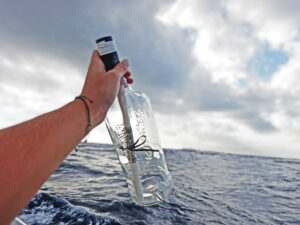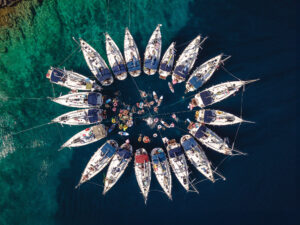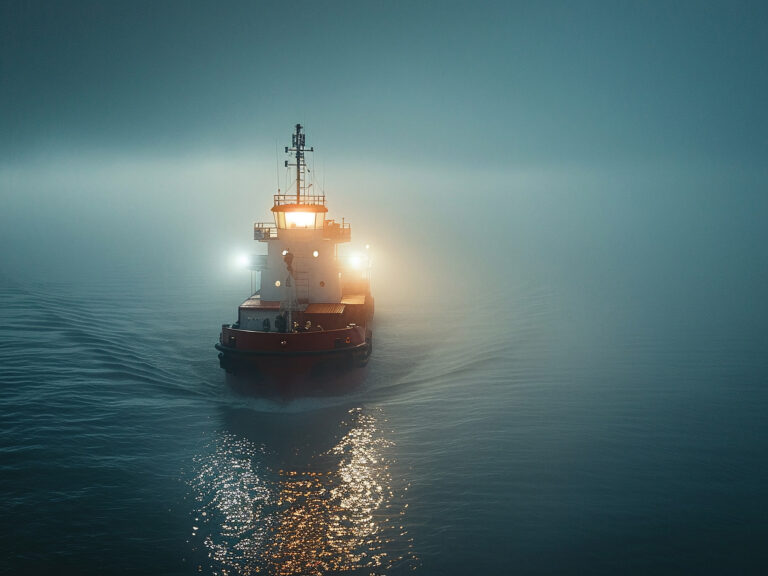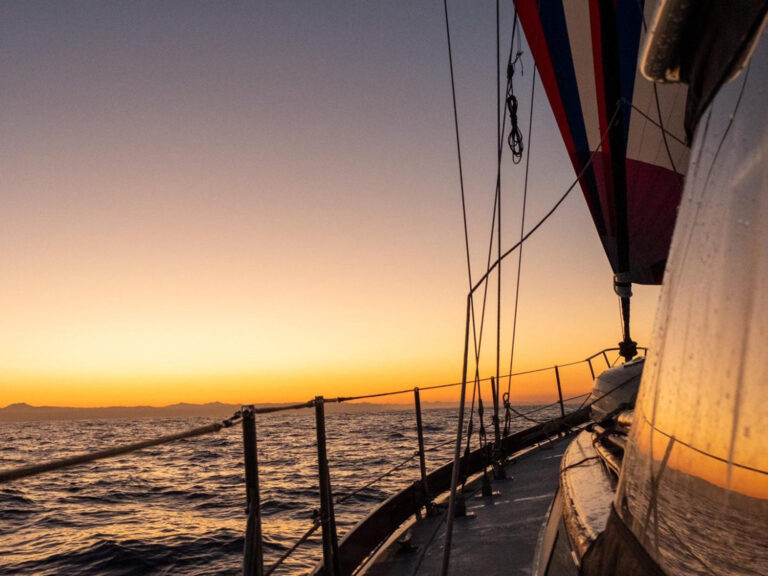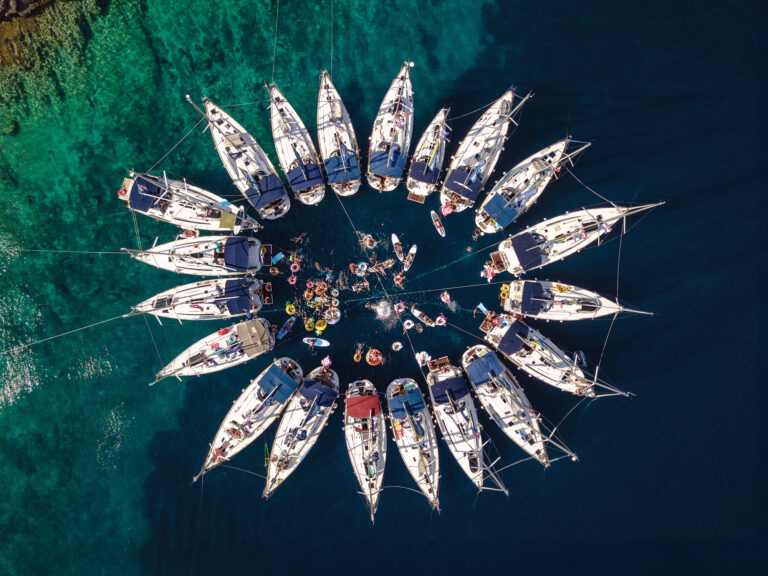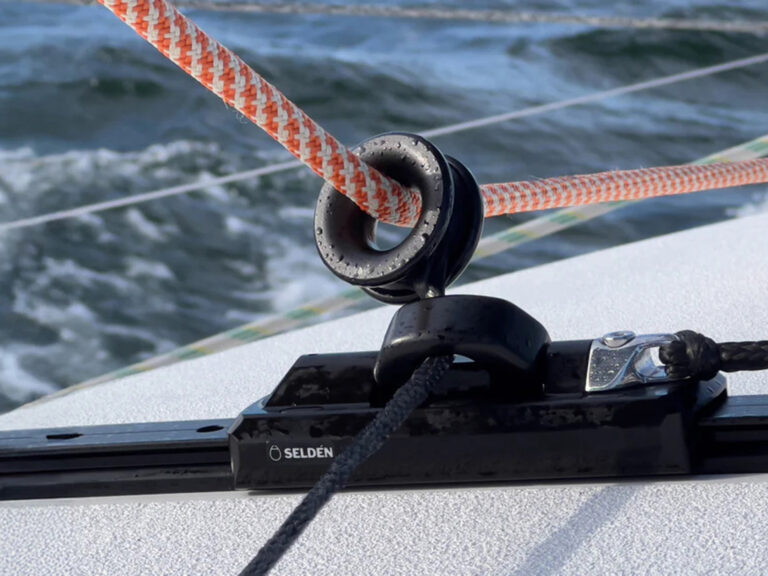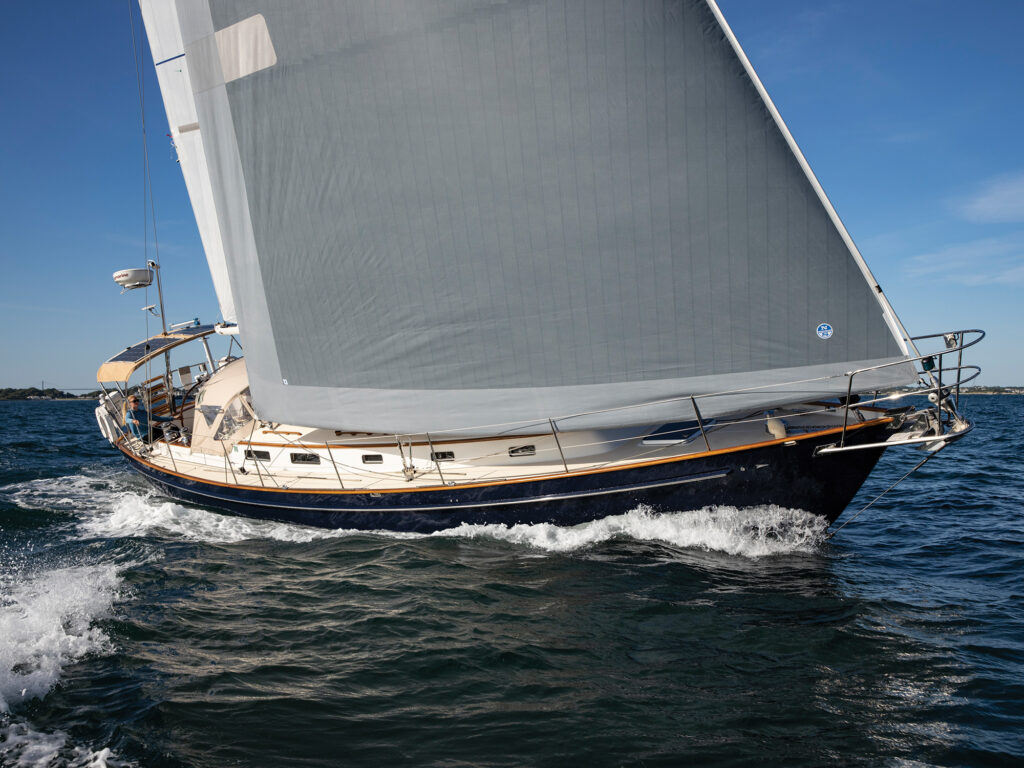
After six months aboard their 47-foot Bruckmann, Althea, Brad and Cara Read are returning to land life—with some reluctance. Sailing back into Rhode Island’s Newport Harbor, Brad thought of the French sailor who, instead of claiming victory in the 1968 Golden Globe Race, decided to keep sailing around the world. “Would I have done the Bernard Moitessier thing and kept going? I think I would have; I like living on a boat. But we had to go back to work.”
Cara, who spent her teenage years living on her parents’ cruising boat, is more practical: “I would have extended it for maybe two months, just because it’s cold here.”
The Reads are lifelong sailors and marine-industry veterans. In six months, they logged 5,000-plus miles, mostly on their own, clockwise around the western Atlantic.
They definitely weren’t quite ready to become liveaboards in 2019, when Althea went up for sale. Brad has been Sail Newport’s executive director for more than 25 years, and Cara calls herself “the bookkeeper” for several small marine businesses. But the boat’s previous owner made them an offer they couldn’t refuse, so they bought a boat that was more than they really needed in and around southern New England.
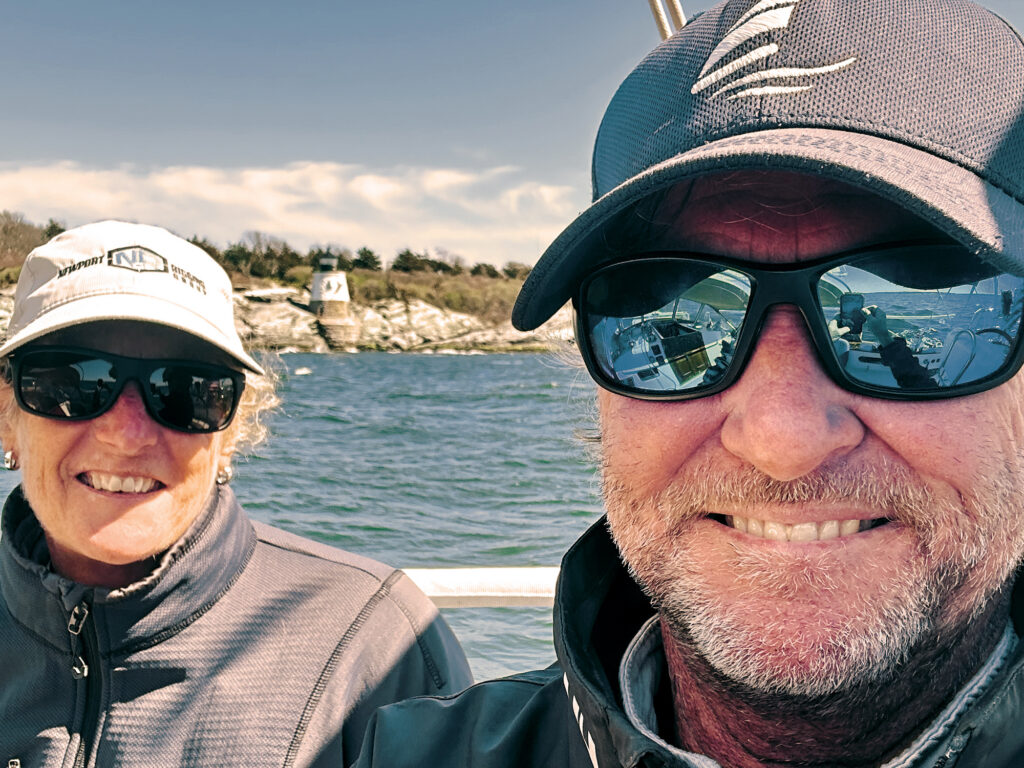
Three years later, a good friend died—and that sparked this sabbatical. “We did it because we’re young enough, healthy enough now,” Cara says. “But we’re not in any position to retire.”
Thanks to Starlink, both were able to stay in touch with their jobs. “It changed our world,” Cara says. When they weren’t offshore, she worked about 10 hours a week—or more when hunkered down, waiting for a storm to pass.
“It’s really hard to leave cold turkey and then come back,” she says. “And the more you work away from the office, the more efficient you get, especially when there’s a carrot at the end like, ‘I want to go snorkeling.’”
Getting Ready
Before heading south, they made several upgrades. Brad says that the three most important were a watermaker, autopilot and furling inner forestay.
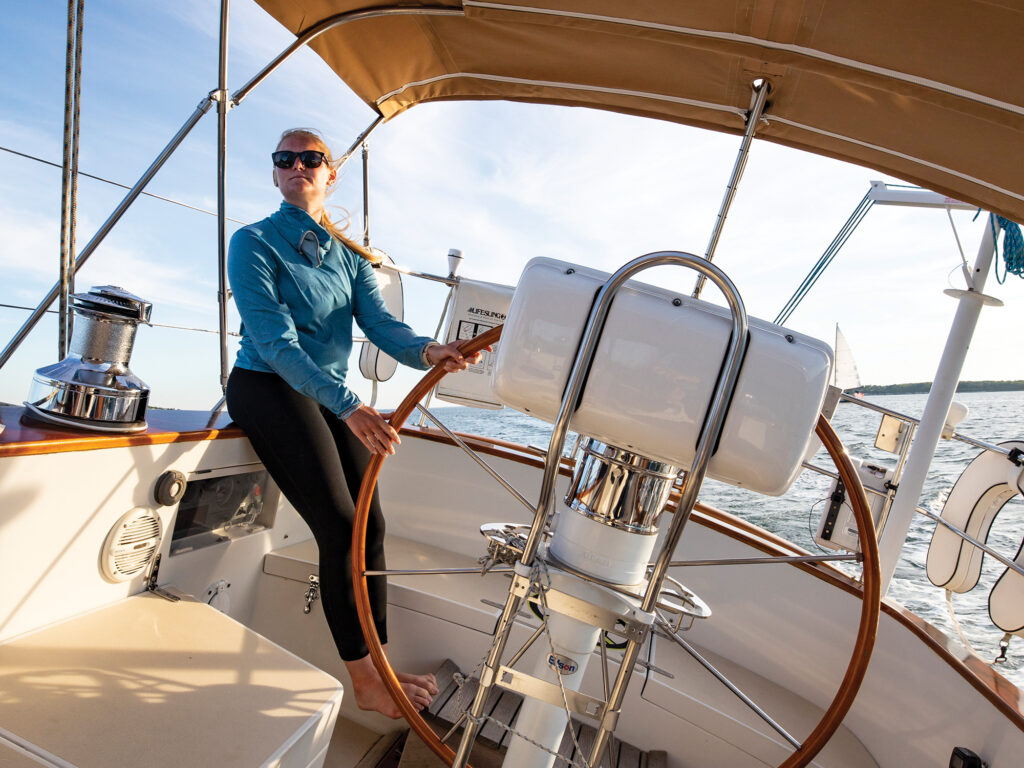
“Double headsails was one of the most important and smartest things we did right,” he says, adding that they call the smaller headsail “Cara’s sail.”
“Brad loves the big sails because he likes to go fast,” Cara says. “But down in the Caribbean, staysail and full main or even a reefed main was the perfect combination. We’d get overpowered with the big jib and pull out the little one, and Brad would be like: ‘Well, we’re not going any slower. You got your wish; your sail is the right sail.’”
Three months before departure, Althea took a direct lightning strike on her mooring in Newport Harbor. Luckily, only the electronics—and a charred Ida Lewis Yacht Club burgee—needed replacing. The Reads were able to depart on schedule. In late October, they sailed out of Narragansett Bay for a three-day passage to Bermuda, accompanied by Brad’s brother, who is a champion sailor many times over, and his wife.
“Kenny and Melissa were great,” Brad says, before admitting to a tiny bit of fraternal drama. Chased by a storm, they entered St. George’s, Bermuda, at night—without a route programmed into the new chart plotter.
“So, Kenny’s down below, telling me which way to turn,” Brad recalls.
“And with the engine on, you can’t hear anything down there,” Cara adds.
“That’s when I got a little testy,” Brad says. “I need more information!”
“When we first left, we needed other people,” Cara says. “And I wanted to learn from Kenny—what a rare opportunity.” But after the leg from Bermuda to St. John in the US Virgin Islands, she says, “We were like, ‘Yeah, we’re good.’” Their kids came for Christmas and a few other visits, “but the rest of the time, it was just us with minimal bickering.”
Their longest doublehanded passage was a five-day sail from the Bahamas to Virginia. Any longer, Cara says, and “I think Brad would have gotten really tired. He feels like he has all the responsibility, so he doesn’t really sleep well. And when you’re tired, you don’t make good decisions.”
Learning Underway
Doublehanding required fine-tuning their sailhandling, Cara says. Hoisting the main, “I would hump the halyard, and Brad would tail it. It’s a little tricky getting the fully battened main between the lazy jacks, but I would never go cruising without lazy jacks.”
The water, Brad recalls, went from 15,000 feet to 40 feet in a matter of boatlengths. “That scared me,” he says.
They also had to manage diesel consumption. On the passage from Bermuda to St. John, they ran out of fuel—verifying their theory that the tank was much smaller than specified. “When we bought the boat, they said we had 90 gallons,” Cara says. “We have 42.”
Fortunately, they carried jugs, and a crewmember on that leg was a mechanic. “After that,” Cara says, “we always kept 10 gallons in the bank because we didn’t want to have a situation where we couldn’t motor in an enclosed area.” Sometimes that meant reducing their daily progress offshore.
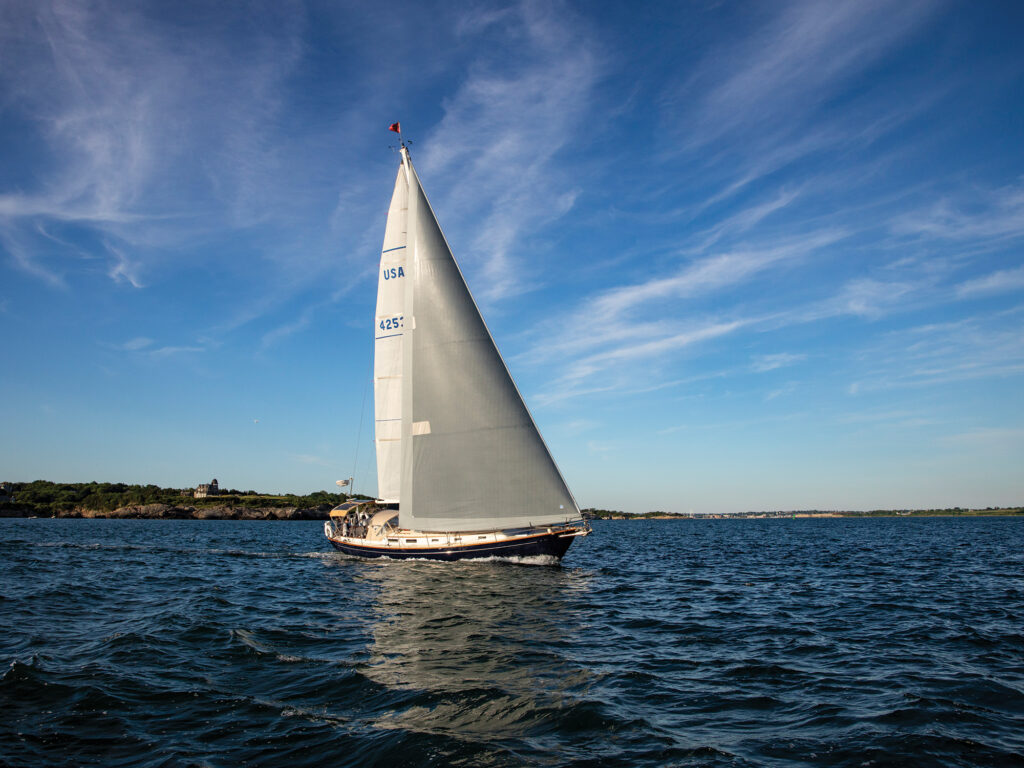
“Every boat is a compromise,” Brad says.
Both Reads mention the US Virgin Islands landfall as a highlight of their cruise. On the five-day passage south, Cara says, “it got warmer and warmer and warmer every day, nicer and nicer. And the water got more and more blue.”
They sailed into Francis Bay on St. John at 2 in the morning. After celebratory beers and stargazing, the rest of the crew headed below for some much-needed rest—but Brad stayed in the cockpit.
“I didn’t sleep a wink,” he says. “The moon was up, I could see the outlines of those beautiful hills, and it was just like, ‘Holy crap, we’re here.’ That was my best moment, and not by a little bit. It was just exactly what I wanted.”
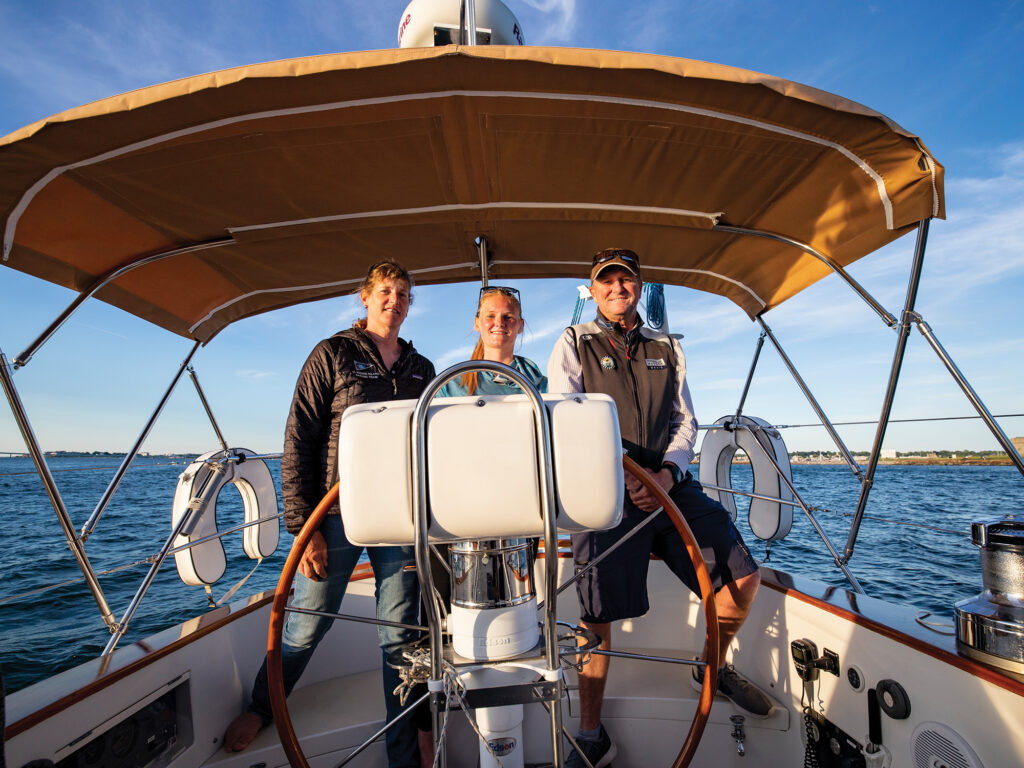
Cara has a harder time picking a favorite moment, though she also really enjoyed the Virgin Islands—and other cruising benefits. “We lost weight,” she says. “Not sure why, though on the boat, even just sitting there, you’re always gimbaling. And you just eat less when it’s hot. Though you drink plenty.”
Challenges and Lessons
Their first major equipment breakdown happened on the passage south, when a weld started to fail on the boom’s gooseneck. They also broke two seacock handles, and one was in the closed position.
“We came up with a fix,” Brad says. “And Cara was a little reluctant on this—”
“I was,” she says. “We’re in the middle of nowhere. We could sink if things go—”
“We’re at anchor, in a beautiful place,” Brad interjects, explaining how he swam down and plugged the hole from the outside. “Undid everything, got the seacock off—”
“What if when you’re unscrewing it, something else broke?” Cara says. “What if, when you’re putting it back… I was freaking out. Brad’s like, ‘It’ll be fine.’”
“And it was,” Brad says with a chuckle. “I saw it on YouTube.” Cara adds that they learned a new definition of cruising: “boatwork in glamorous places.”
For her, the weather was the biggest challenge, especially in the Bahamas.
“The Bahamas are really low,” she says. “There’s no place to hide. And our 6-foot draft limited where we could go. That was a huge thing.”
Brad’s worst moment was on the passage from Puerto Rico to the Turks and Caicos. The couple had planned to leave the Turks to starboard, but after a few jibes to avoid Silver Bank, Brad opted for a more direct northerly route—which sent them out into a 2-knot adverse current that was bucking the strong easterly breeze.
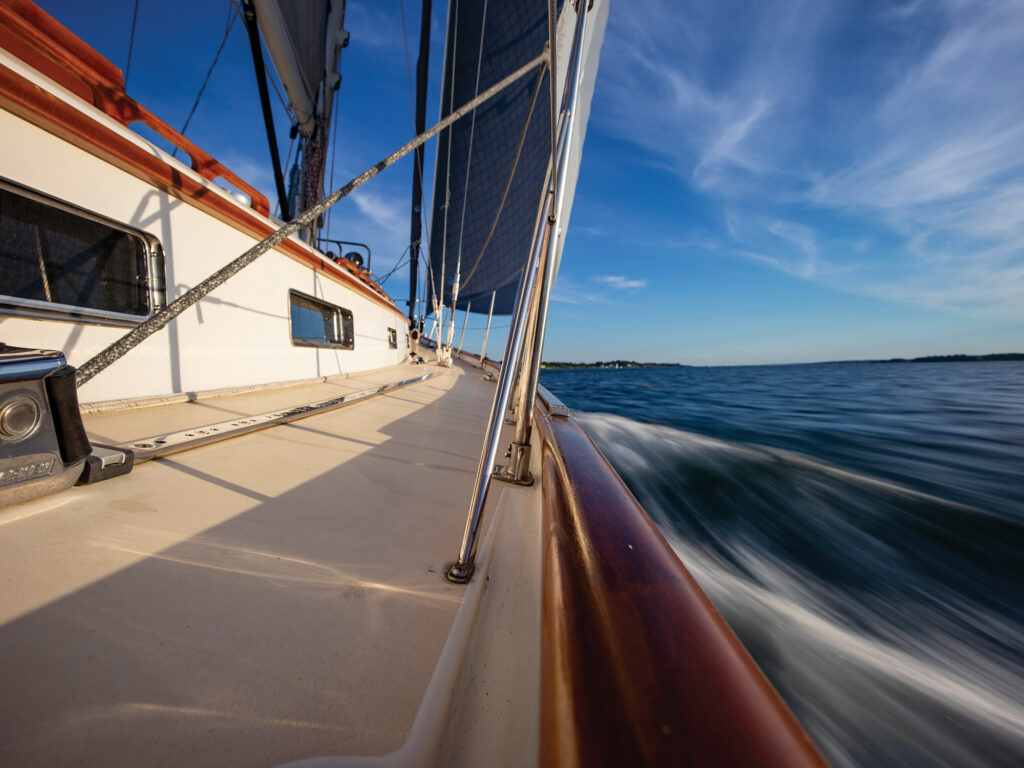
“The currents are not well-documented,” he says. “Not only were we going slower, but it was also a pretty bad sea state. I got really mad at myself for
second-guessing the original plan.”
Studying the chart again, they cut back in to calmer waters before facing their next challenge: a skinny channel between an island and a reef.
“And it was at night,” Cara says.
The water, Brad recalls, went from 15,000 feet to 40 feet in a matter of boatlengths. “That scared me,” he says. “We put ourselves in a tough spot—or I put ourselves in a tough spot. But as it turns out, it was fine. We got right through, and it was nice and smooth water on the other side.”
Unlike Cara, Brad had never lived on a boat before this past winter. “I did two weeks with the family when I was a kid,” he says, “and then some 10-day cruises with our kids. But never out of sight of land. All coastal cruising. It’s different.”
Now he’s hungry for more adventures, including a return to the Chesapeake. “All the nooks and crannies,” he says. “I felt like we missed that because we had to get back to work.”
Maybe next time, he’ll finally have his “Moitessier moment” and just keep sailing.


